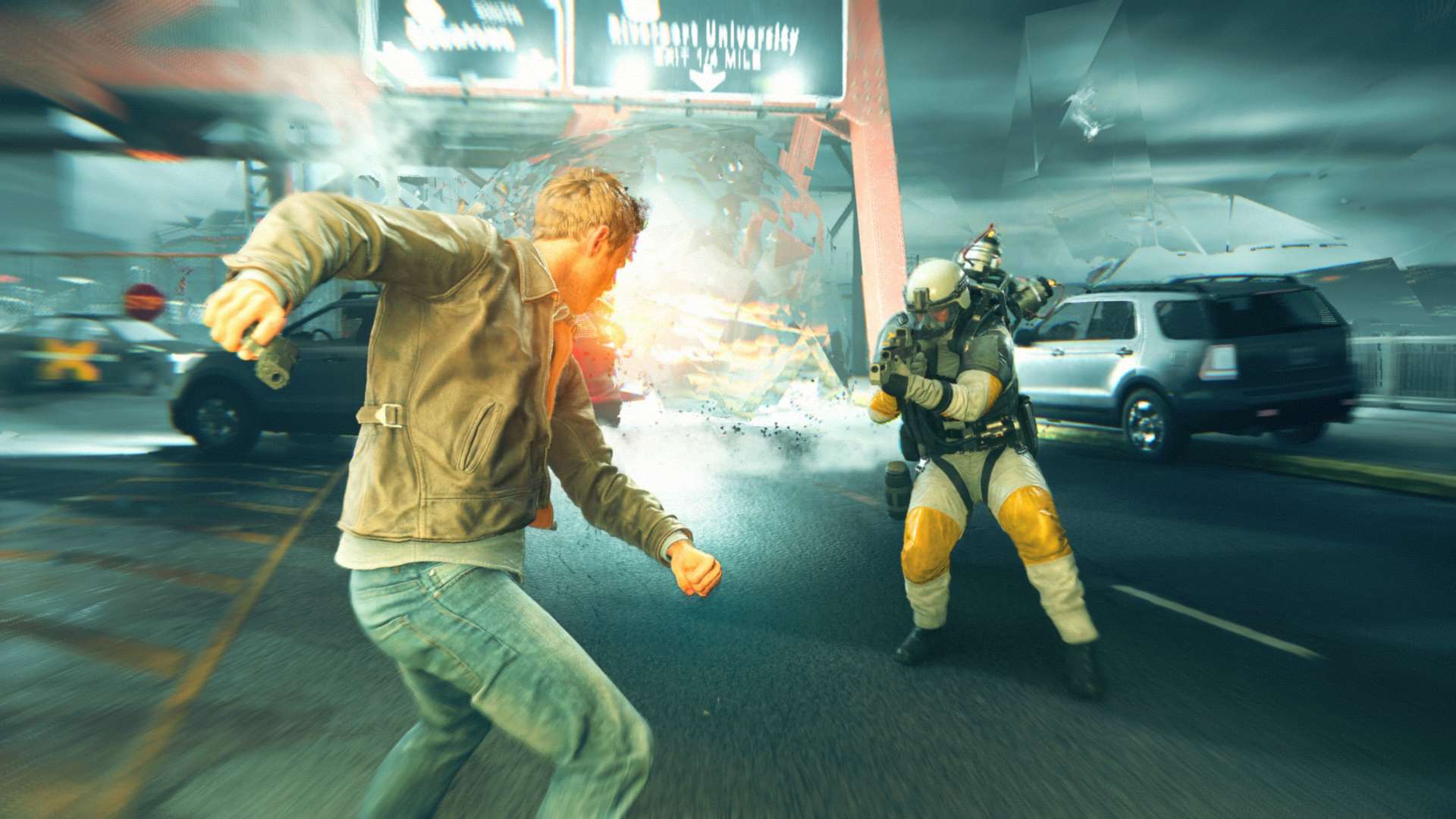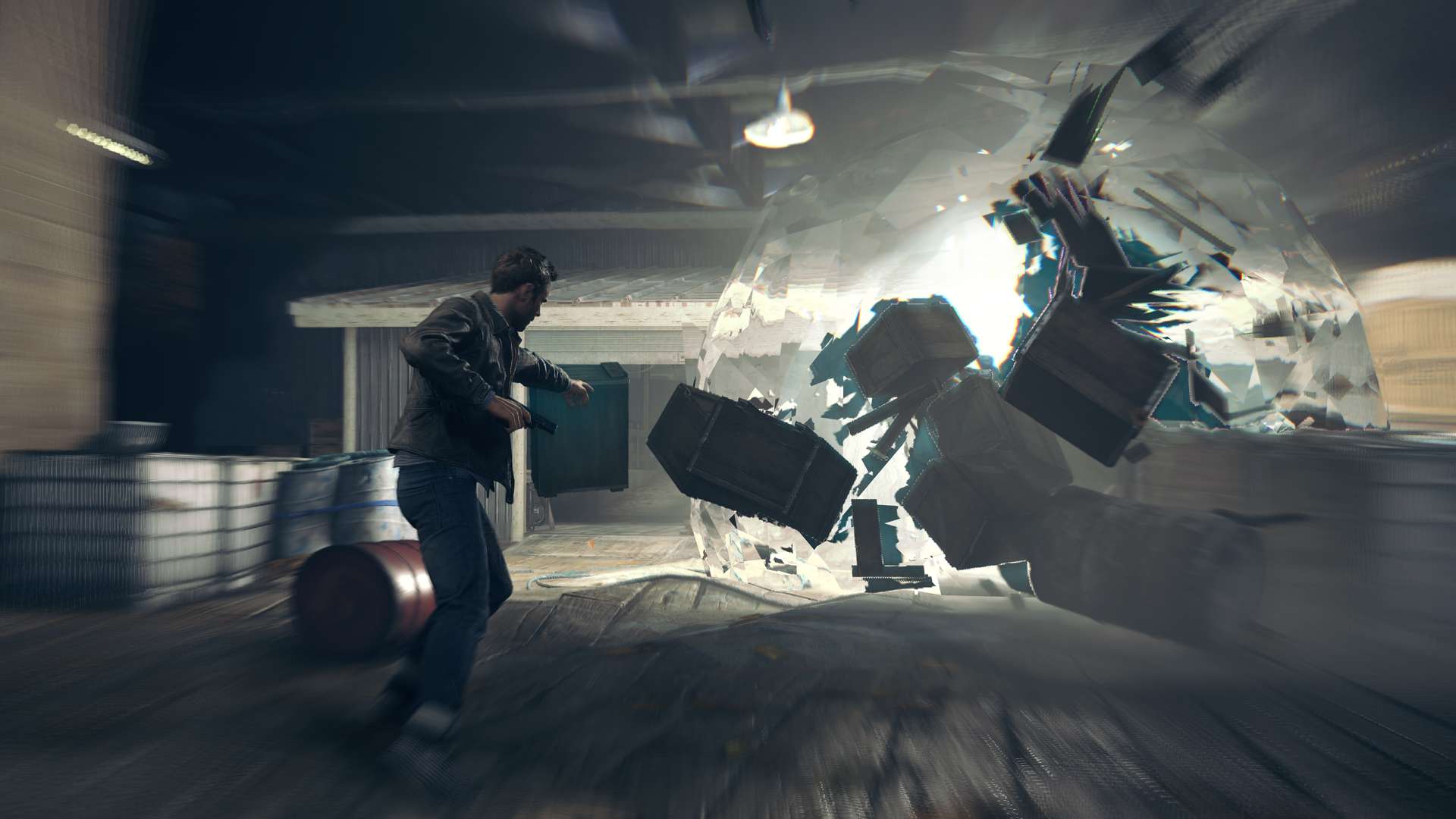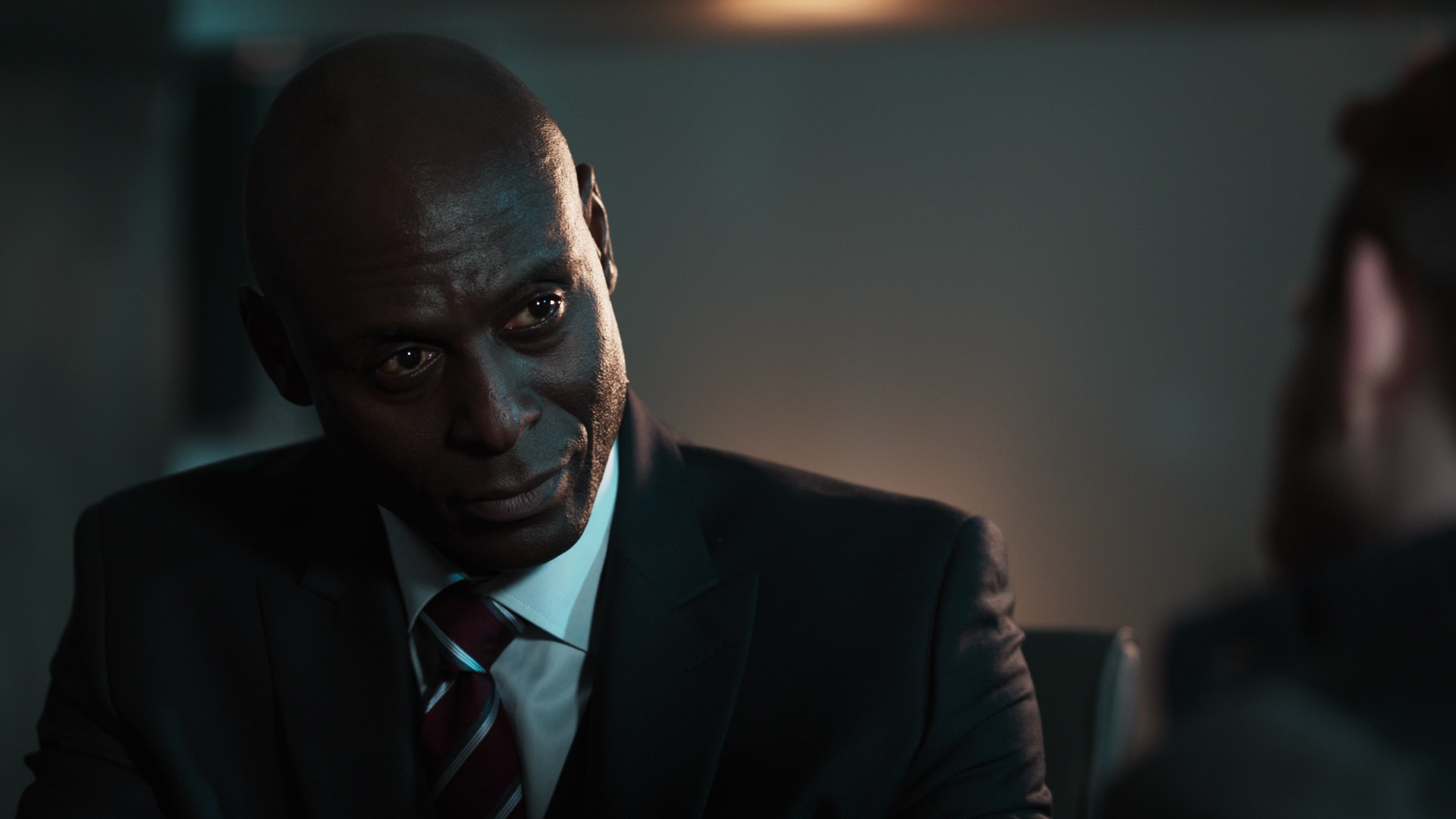
Time-travel yarns always package the same dilemma: Can the past be changed or not?
It’s a metaphysical cliché that haunts Quantum Break, an Xbox One and PC action-shooter out April 5 directed by Sam Lake, a Finnish writer celebrated for his noir-ish wordsmithing in 2001’s Max Payne (a shooter in which players could slow time) and spookier storytelling in 2010’s Alan Wake (an occult thriller that made TIME’s top 10 of 2010).
With Quantum Break he borrows from both, adding A-listers like Shawn Ashmore, Lance Reddick, Aidan Gillen and Dominic Monaghan to voice visually impressive digital facsimiles of themselves during the game’s run-and-gun sequences, then act in four lavishly produced live action interludes. You play as Ashmore’s character (Jack Joyce) during the game parts, and—here’s the twist—then get to see what the villains are up to during the video sequences, which play at the end of each act complete with TV-ish “last time on Quantum Break” recaps.
But Lake’s apocalyptic near-future tale of friendship and betrayal in the wake of a quantum fracture that threatens to end time on a cosmological scale feels more like another pitch for a doomed primetime sci-fantasy series. The good guys think the fracture can be fixed before the universe jams up, while the bad guys want to create a temporal ark to soldier through it. (‘Huh?’ is an appropriate response here.) Pad with ballistic libretto and soggy melodrama. It’s not that Lake’s writing is bad, it’s just not that interesting. His narrative blade scrapes the ground instead of tilling deeper questions, or spinning time travel in a new light.

That leaves the superhero-with-guns gameplay sequences to carry the weight. As Joyce, the fracture imbues you with time powers, like being able to shoot and move faster than your enemies, dodge gunfire and momentarily zip around areas like The Flash. The most clever of these, “time stop,” places temporal bubbles around enemies that slow your bullets, letting you “stack” a dozen shots from a handgun, which become a burst of machine-gun-like fire when the bubble vanishes. I imagine it’d be cathartic if you’re a bad shot. Or a sadist.
With great power should come interesting opposition, but in Quantum Break opponents are familiar busywork. First come the clueless bad guys with pop guns, then the smarter ones with high-powered rifles and grenades. Eventually the armored heavies lumber on set schlepping monster machine guns, followed by the spooky special forces with diet versions of your own abilities. Mix and match with scenarios where there’s a device that saps your powers, or the mini-boss has a weak spot on its back, or there’s a Braid-like puzzle you have to solve by slowing an object to open the way forward. It’s all perfectly competent and boringly idiomatic.
Sometimes you can’t help but notice the gimmicks. Take an area puzzle where you have to get through a window to open a door below. Except getting to the window involves clambering over every other object placed in the level—to make the puzzle harder by increasing the potential fail points, in other words. That you’re running a contrived gauntlet chafes against the game’s attempts at narrative seriousness. Plus it feels like lazy puzzle design.

Or consider the branching story moments Remedy calls “junction points.” They’re harmless codas at the close of an act that purport to let you peer along dichotomous future timelines before selecting one or the other. But they’re more like the shrewdly obtuse “coming next time” clips played over a TV show’s credits, as potentially misleading as revealing, and off-putting if you’re no fan of branching narrative games. Whatever replay value they add depends on your affection for Lake’s story, about which see above.
The game has its moments. Lake’s instinct for the deeply personal (as opposed to mere plot contrivance) sometimes connects awkwardly or misfires here, but at least he’s aiming in the right direction. Lance Reddick, who plays a mysterious corporate aide-de-camp, proves once again that he can make even the tritest lines sound poetic. And you’ll want to hang around after battles, because some of the tableaus that emerge invite serious rubbernecking: time-snared soldiers suspended midair, tendrils of luminescence from their burst weaponry bleeding into space, or the fractal jags erupting around a head thrust midway through industrial plate glass. It’s disturbingly beautiful stuff.
Could we change the past if we had time machines? Should you give Quantum Break a go? Choose wisely, because in real life, time’s arrow is a one-way trip.
2 out of 5
Reviewed on Xbox One
More Must-Reads from TIME
- Breaking Down the 2024 Election Calendar
- How Nayib Bukele’s ‘Iron Fist’ Has Transformed El Salvador
- What if Ultra-Processed Foods Aren’t as Bad as You Think?
- How Ukraine Beat Russia in the Battle of the Black Sea
- Long COVID Looks Different in Kids
- How Project 2025 Would Jeopardize Americans’ Health
- What a $129 Frying Pan Says About America’s Eating Habits
- The 32 Most Anticipated Books of Fall 2024
Write to Matt Peckham at matt.peckham@time.com